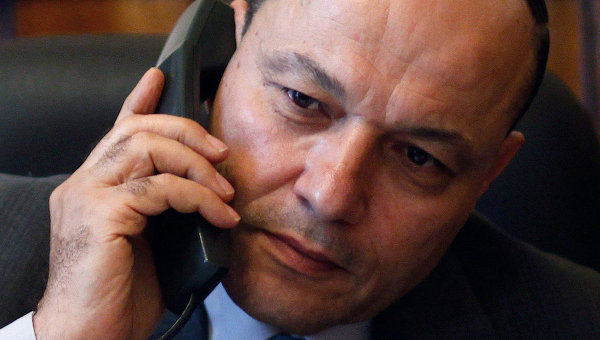CAIRO: After a two-and-a-half-year investigation into the country’s steel market, Egypt’s competition watchdog said that local producers have not engaged in any anti-competitive or monopolistic practices.
The findings of the investigation into one of the country’s most controversial sectors have been highly anticipated.
Some analysts met the verdict with skepticism.
“This result was unexpected. Everyone thought they [the authority] will at least suspect the presence of some monopolistic practices similar to the case of cement, said Magdy Sobhi, economist at Al Ahram Center for Political and Strategic Studies.
“But to say there is no monopoly at all; no one expected that, he added.
The Egyptian Competition Authority (ECA) said in a statement released on Wednesday that the existence of agreements between companies working in the production of steel rebars in violation of Article 6 of the anti-monopoly law could not be proven.
There was also no evidence to show that local steel giant Ezz Steel had abused its dominant position in the sector in violation of the law, nor had smaller firms collaborated in anti-competitive practices.
According to the ECA, Ezz Steel holds 58 percent of Egypt’s steel market.
“These findings are not very surprising in case Ahmed Ezz used his strong political ties to close the investigation, Sobhi said.
Officials at Ezz Steel and Beshay Steel were not available for comment at press time.
Egypt’s giant steel producer Ahmed Ezz is also a senior official of the ruling National Democratic Party (NDP) and part of the NDP business group led informally by Gamal Mubarak, President Hosni Mubarak s son.
Ezz is a member of the nine-person NDP policies secretariat and the party official in charge of organization.
The ECA could not be reached for comment despite several attempts to contact the authority.
“Statements released by the competition authority are not clear enough. The authority said there was no monopoly in the steel market because there [was no demand on imports], saying that means local steel was better priced. This point is not valid, Sobhi explained.
“Saying that local steel prices during the period of the investigation [between 2005/06] were lower than international ones is not correct, he added.
“Local steel prices could have been much cheaper than international prices.
“Consumers saw prices jumping on a monthly basis. Prices were higher than production costs.. However, the point is that no one has evidence to prove this.
The government’s competition watchdog said in the statement that leaps in local steel rebars were mainly due to an increase in production components, specifically billet. “Other factors include an upsurge in local demand as a result of growth in construction and real estate sector, the statement read.
“Generally speaking, steel prices are much more tied to international prices than those of cement. Cement can somehow be detached from international prices because most industry components such as limestone and gypsum are locally manufactured. Unlike steel: cost components such as iron ore are not found in one place, said Ismail Sadek, construction analyst at Beltone Financial.
“It is not easy to monopolize the market at the current time. What is required is to follow international prices in order not to lose any market share, he said.
He explained that some steel traders recently signed contracts to import 300,000 tons from different countries such as Turkey, Greece, and Ukraine at lower prices than those of Ezz.
“That means that competition plays a role here. Any attempt to monopolize the market is very difficult.. That’s why Ezz has been lowering prices to combat competition.
In July 2006, Egypt’s trade ministry asked the competition watchdog to investigate price practices in the cement and steel markets.
In August 2008 – following a 14-month probe into the cement sector – a Cairo court fined 20 cement industry executives LE 10 million each for violations of the monopolies law and price fixing.
The trial, which began in February 2008, was the first of its kind under an anti-monopolies law passed four years ago to bring Egyptian law into line with international practices.
Patrick Gaffney, steel analyst at EFG-Hermes agreed with findings in the steel investigation. I don t think there have been monopolistic prices because domestic steel prices were set below imported prices until very recently in order to compete with imports.
He predicted local steel producers will likely lower prices in February.
The ECA recommended the government license integrated steel plants to reduce production costs and increase competition in the sector. It said the government appeared to be going in this direction.

